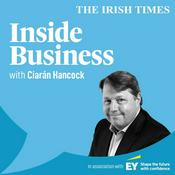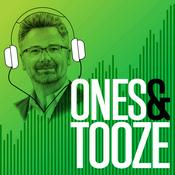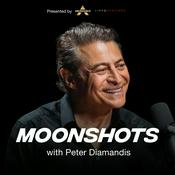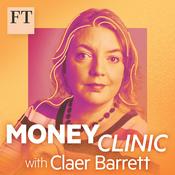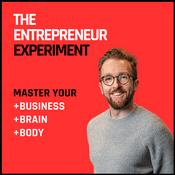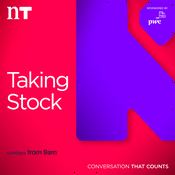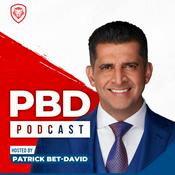23 episodes

S3 - E6: The Ominous Omnibus with Andreas Rasche
02/6/2025 | 37 mins.
In this episode, I talk about the EU’s omnibus package with Copenhagen Business School Professor Andreas Rasche. The omnibus is a legislative package that aims to simplify several European sustainability directives all at once and has far-reaching implications for the European economy. It is a chance to adjust regulation that has rightly been criticized for being too complex and confusing, but there is a risk that the proposed fixes create more confusion without solving some of the underlying problems. My favourite insights from this conversation were:It’s the right time to engage with your Member of European Parliament and make sure your views and needs with regard to adjusting the CSRD, the CSDDD, the Carbon Border Adjustment Mechanism, and the EU taxonomy are heard.According to a survey that Andreas has contributed to, European businesses would prefer targeted improvements over a fundamental overhaul of the CSRD, given that they have already invested in compliance. It would be a shame if the omnibus ends up as political posturing without delivering on simplification.A huge underlying problem is a lack of comprehensive cost-benefit estimates of the existing regulations and the proposed adjustments.It seems that European leaders have overly focused on details and failed to consider the bigger picture of what their rules are supposed to achieve. Improving this can hopefully start with frank conversations such as this one. I can highly recommend following Andreas for updates on this important topic. Here is a link to the mentioned survey: CSRD Survey Spotify: https://unisg.link/Innovations-In-Sustainable-Finance-SpotifyApple Podcasts: https://unisg.link/Innovations-In-Sustainable-Finance-AppleWebsite: https://unisg.link/Innovations-In-Sustainable-Finance

S3 - E5: How to succeed in Blended Finance with Nadia Nikolova
19/5/2025 | 31 mins.
In this episode, I return to the topic of blended finance with Nadia Nikolova, a managing director at Allianz Global Investors. She explains how blended finance projects get off the ground and shares her own journey into the field. Along the way, she provides many fascinating anecdotes and insights, especially for those considering a career in blended finance. My favourite insights were:The three essential ingredients for succeeding in blended finance are: leadership, flexibility, and trust.Blended finance projects are a balancing act, because there are very different parties involved, with different incentives and different constraints. Nadia likens it to a Jenga tower, where all parties need to cooperate to keep it in balance.Blended finance is simply a financial technique that can be applied to many problems. When done well, it yields happy investors and social benefits. But flexible capital – the magic ingredient - is scarce. Therefore, blended finance is only suitable for ventures and projects that would otherwise not receive funding.I hope you enjoy the conversation and get inspired by Nadia’s passion for the subject. Spotify: https://unisg.link/Innovations-In-Sustainable-Finance-SpotifyApple Podcasts: https://unisg.link/Innovations-In-Sustainable-Finance-AppleWebsite: https://unisg.link/Innovations-In-Sustainable-Finance

S3 - E4: Fostering or Dictating Innovation? The Role of Governments with Mac Zellem
04/5/2025 | 51 mins.
In this episode, I speak with Mac Zellem – a former budget director of the State of New Hampshire - about financing innovation. We explore how public finance can shape the future, why regulations can be both a hurdle and a help, and what Germany might need to get right in its planned fiscal stimulus. It turned out to be a longer conversation, mainly because I found it to become more and more interesting as we went along.My favorite takeaways from the conversation were:Government as Both Catalyst and Constraint: We talked about the delicate balance governments must strike between enabling innovation and overregulating it. Public procurement, R&D, and credit guarantees can be powerful tools—but only if used with a clear strategy and technical competence.The idea of carried interest dates back to the merchants of Venice: They rewarded risk-taking by not taxing the profits from risky maritime trade. When there is a public interest to have investors take risks, this is a politically charged but functionally interesting policy tool next to subsidies or guarantees.Culture and expertise are important pieces of the puzzle: Mac describes how it’s important to get the right skills in place for good decisions. And that there are vast differences in cultural attitudes to risk and failure, across public and private institutions, but also between the US and Switzerland.Regulations Need a Spring Cleaning: I liked the idea that a “spring cleaning” of outdated or overly complex regulations could unlock new energy in the manufacturing sector, especially for startups trying to enter the space.Germany’s Moment to Lead: Finally, we discussed how Germany’s fiscal stimulus could become a real driver of innovation—if the government provides clarity, consistency, and a long-term plan that builds trust among investors and innovators alike.For anyone interested in how policy can support innovation while managing risk, this episode is full of practical insights and experiences. Further Notes:I said on the podcast that the Swiss Procurement Budget is around 50 billion CHF. That was overstated; it is around 35-40 billion CHF.The story about carried interest in Venice is covered in a fascinating Paper by Diego Puga and Daniel Trefler.I mentioned Jean Tirole’s recommendations for innovation in Europe based on this report.

S3 - E3: Green Giving with Paul Smeets and Dan Stein
02/12/2024 | 44 mins.
In this episode, I speak with Paul Smeets, a professor of philanthropy and sustainable finance at the University of Amsterdam, and Dan Stein, founder of Giving Green, a research organization that helps donors maximize their climate impact. Together, we explored the intersection of individual actions, systemic change, and effective giving to address climate change. My favorite takeaways from the conversation were: Massive Carbon Savings Through Strategic Interventions: A compelling example discussed was the advocacy to keep California's Diablo Canyon Nuclear Power Plant operational. This single campaign, costing just $3 million, could save 35 megatons of carbon emissions over five years—equivalent to 10% of California's annual electricity-related emissions. It’s a striking illustration of how targeted efforts can have disproportionately large impacts on climate goals. Gut Feel vs. Voice of Reason—Do Both: Paul shared how his shift to a plant-based diet initially felt undermined when he learned that systemic donations could have a larger impact. Yet, he continues his dietary choices while also donating to climate charities, finding that both approaches can coexist. The conclusion? Embrace the emotional satisfaction of personal action and the logic of systemic impact through strategic giving. The Power of Giving Green: Dan explained how Giving Green identifies and supports the most effective climate initiatives, such as advancing geothermal energy and advocating for lab-grown meat. Their research process focuses on scalable, feasible, and underfunded opportunities. By donating to Giving Green’s recommended causes, individuals can achieve far greater impact than through behavioral changes alone. If you’re curious to learn more: Visit Giving Green’s website to explore their recommendations. Check out Effektiv Spenden (for German-speaking listeners) for efficient donation options to vetted climate charities. Stay informed about cutting-edge solutions like geothermal energy and lab-grown meat. For your convenience, I’ve linked the resources we discussed:Giving Green: https://www.givinggreen.earth Effektiv Spenden (catering to the German-speaking region): https://effektiv-spenden.org Stanford/MIT study on the Diablo Canyon nuclear power plant: https://energy.stanford.edu/news/extending-diablo-canyon-nuclear-plant-would-help-california-meet-its-climate-goals-new-study A news story about the tasting of the first lab-grown burger: https://www.science.org/content/article/first-artificial-burger-gets-tepid-reviews-billionaire-financier-unmasked

S3 - E2: The Impact of Everything with Annu Nieminen of Upright
20/11/2024 | 50 mins.
In this episode, I speak with Annu Nieminen, CEO of Upright, a Finnish technology startup with an automated method to quantify companies' net impact on people, planet, society, and knowledge. Upright combines machine learning and natural language processing to analyze scientific data and company activities, providing an impact profile for companies worldwide.My favorite takeaways from the conversation were:Compromising the Answer, Not the Question: Annu emphasized the importance of focusing on the right question, even if the answer remains imperfect at first. Upright’s model prioritizes understanding a company's true net impact, even if it challenges traditional ESG metrics.Hidden ESG Champions and Challenges: I loved Annu’s examples of hidden impact champions like condom manufacturers and sewage infrastructure companies—both create significant positive health and societal impacts, even if they’re not traditional ESG darlings. Conversely, modern tech companies working in areas like ad optimization for tobacco or fast fashion can have surprisingly negative net impacts.Scarce Human Capital: Upright introduces the idea of evaluating companies based on the opportunity cost of the human talent they employ. This provocative metric raises critical questions about how we allocate the world’s brightest minds.The Power of Open Data: Annu’s vision for the future is to create a neutral, science-based resource for understanding a company’s impact. She hopes this could become the default source for anyone searching for "Tesla impact" or similar, allowing a common-sense starting point for discussions.For listeners who want to dive deeper, Upright offers a free version of its platform to explore company impact profiles. Check it out and see what your favorite company is doing for (or to) the world. https://uprightplatform.com
More Business podcasts
Trending Business podcasts
About Innovations in Sustainable Finance
Listen to Innovations in Sustainable Finance, The Other Hand and many other podcasts from around the world with the radio.net app

Get the free radio.net app
- Stations and podcasts to bookmark
- Stream via Wi-Fi or Bluetooth
- Supports Carplay & Android Auto
- Many other app features
Get the free radio.net app
- Stations and podcasts to bookmark
- Stream via Wi-Fi or Bluetooth
- Supports Carplay & Android Auto
- Many other app features


Innovations in Sustainable Finance
download the app,
start listening.







